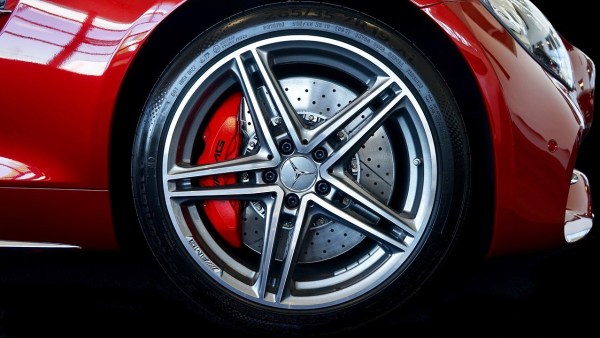It is a really good idea to check your brakes periodically, at low speed on a road which is wide and with no traffic or pedestrians, and dry and free of obstacles, where you can try the brakes by applying various different pressures, including an emergency stop, such as was done in your driving test. Listen and watch for anything unusual, such as some of the things we will explain, but if anything doesn´t seem right, trust your instinct and get them checked immediately.
It is also extremely important to check your brakes before driving anywhere after a heavy rainfall like the storms we experienced over Easter. Water is an enemy of the braking systems as it can get into the hydraulic systems and can reduce the friction needed for the brakes to be efficient. It can also cause decay to some of the parts of the system.
Similarly, if you are driving and you drive through a body of water, such as a ford or some of the deep puddles like we had during the rains, check your brakes straight away, but this time applying them gently to avoid and sudden movements that can cause skidding or locking of the wheels.
Modern vehicles are fitted with all kinds of intelligent systems, including things like ABS, or Anti-Locking Braking systems, for example, but we mustn´t rely too much on the technology and must maintain some responsibility of awareness ourselves, after all, we are the drivers.
The general brakes on a car are composed of two different systems, disk and drum brakes. Although we don´t need to know the exact science behind these systems, we know that this is the case because we know that there are the brakes that we operate with our foot pedal, and the hand-operated or parking brake. Principally however, although the systems are very different, the principle is similar in that they both work by pressure and friction reducing momentum. Don´t worry if science wasn´t your top subject at school, that´s as complicated as we´re going to get.
Some vehicles do provide warnings on the dashboard if the onboard computers defect a fault with the system, and if this happens, it is crucial you seek help from a qualified mechanic immediately.
We can also use our senses to detect brake problems too, which is also as important as the computerised warnings.
A few things we can look out for include listening when we apply the footbrake. Do you hear anything unusual like a grinding or clattering sound for example? Does the vehicle pull to one side or the other when you apply the brake, even just slightly? Is there an unusual smell when you apply the brakes? These are just a few issues that might suggest a problem with the braking system and must be checked immediately. Similarly, have you noticed a reduction in the efficiency of the brakes? This is one of the most difficult to detect though as the wear is normally gradual, a bit like when your eyesight starts to fail, it´s not usually noticeable until you go to the opticians and they put a pair of spectacles on you.
When you apply the handbrake or parking brake, does it apply firmly and keep the vehicle secure from moving? Is it difficult to apply, or release? These issues could indicate a problem with the parking brakes.
Finally, whilst we are on the braking system, it is also a good idea to check the brake lights are working properly. As we mentioned previously, when checking the vehicle´s lights it is a good idea to have somebody assist you, so that one person can operate the controls and the other observe. The brake lights are a crucial warning system for other road users as they indicate that you are slowing down or stopping. Without them, a collision to the rear of the vehicle is increased. Check all the brake lights are working, and if not, get them fixed straight away.
The braking system also forms part of the mandatory ITV test, and so by keeping a check on your brakes and keeping them in optimum operating order not only keeps you safer, it also increases the likelihood of your vehicle passing the test.









